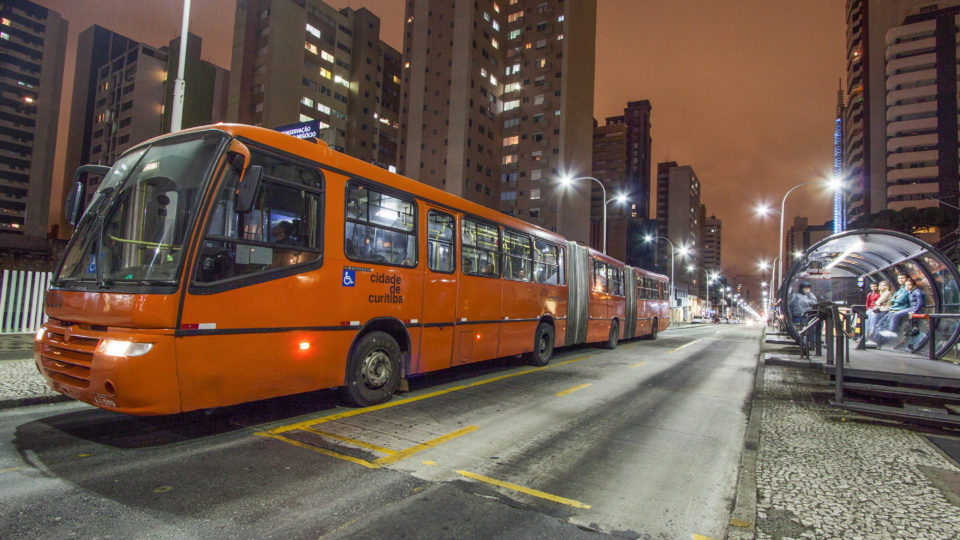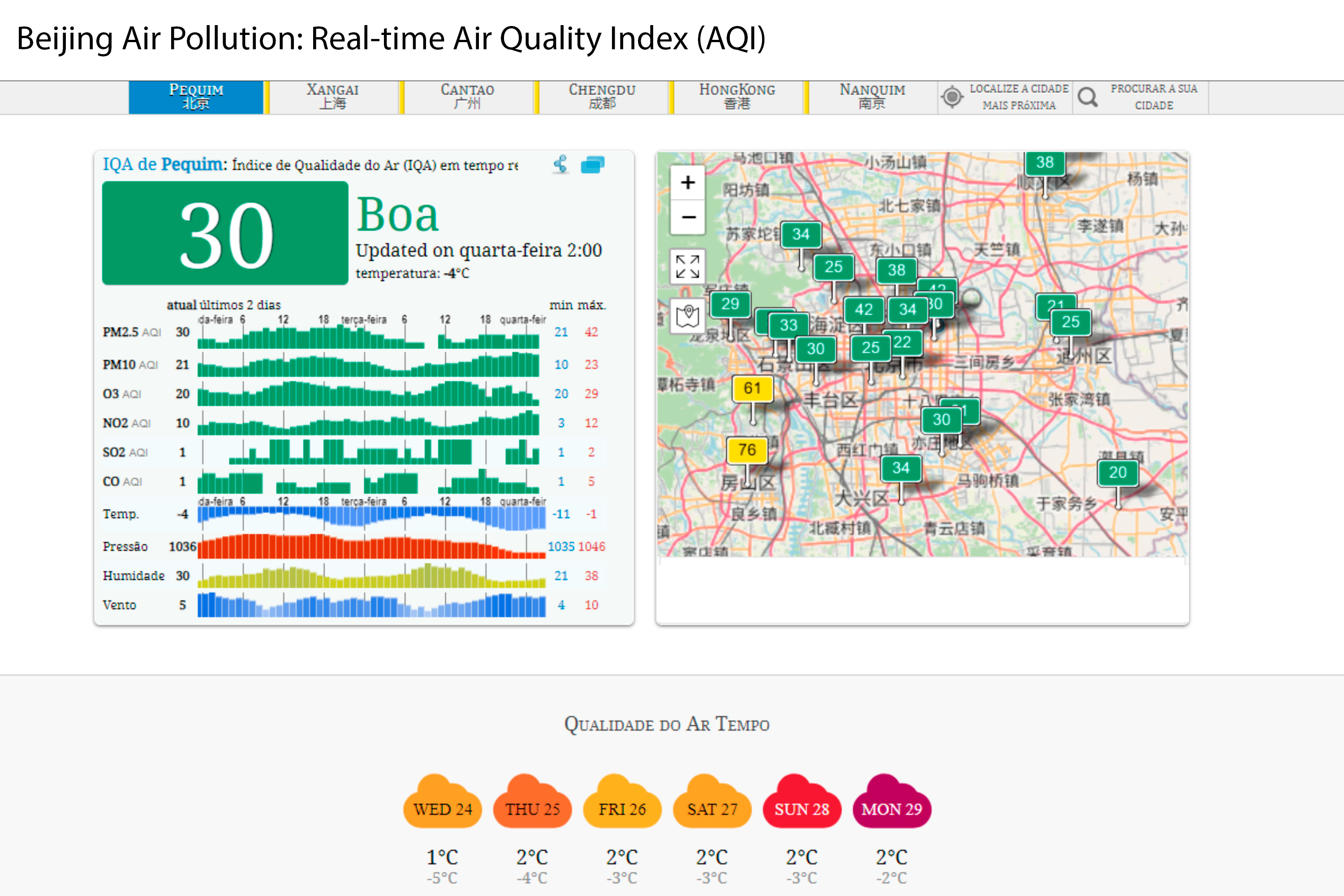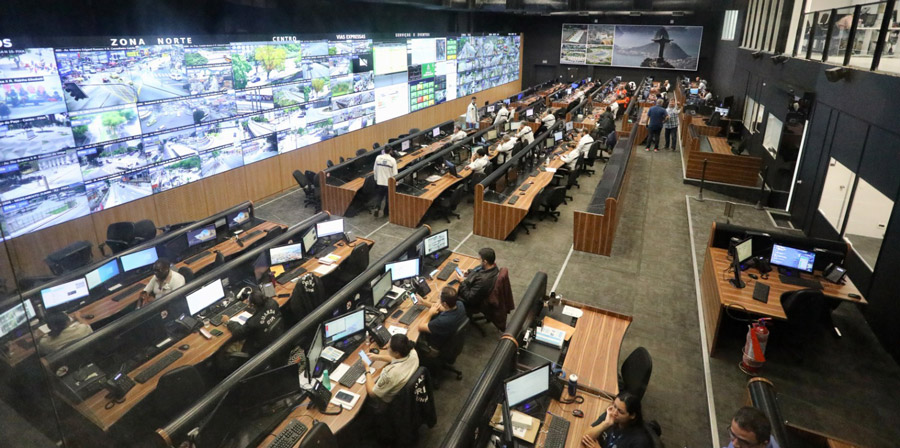Smart, democratic and sustainable cities: the legacy of the G20 in Brasil
In this increasingly interconnected world, Brazilian cities have been promoting initiatives that stand out internationally, many of them developed through cooperation towards solutions that are leveraged by digital tools and citizen participation. Meanwhile, countries such as Germany, China, the US, France and Japan have been preparing inspiring initiatives for Brasil's large urban centers, providing opportunities for cooperation around good practices. By Atahualpa Blanchet, exclusive for the G20 Brasil website

Brasil's presidency of the G20 this year is a strategic opportunity for the consolidation of policies and measures within the framework of the smart cities concept.
Smart, democratic and sustainable cities are dynamic spaces where technological innovation reinforces and contributes to the collective construction of public policies in fields such as urban mobility; basic sanitation; food security; energy management; waste treatment; security; and disaster prevention—all based on principles such as transparency, human centrality and accessibility.
As a starting point, it is worth highlighting the importance of incorporating elements such as democracy, sustainability, resilience and sustainability into the concept of smart cities towards the construction of urban policies that strive to reconcile new technologies with human values and respect for the environment.
In December 2023, the Brazilian government announced that it will hold G20 Working Group meetings in 15 cities: Brasília, Belém, Belo Horizonte, Fortaleza, Maceió, Manaus, Porto Alegre, Rio de Janeiro, São Paulo, Salvador, São Luís, Teresina, Foz do Iguaçu, Cuiabá, and Recife.
In this increasingly interconnected world, Brazilian cities have been promoting initiatives that stand out internationally, many of them developed through cooperation towards solutions that are leveraged by digital tools and citizen participation.
In this increasingly interconnected world, Brazilian cities have been promoting initiatives that stand out internationally, many of them developed through cooperation towards solutions that are leveraged by digital tools and citizen participation.
G20 countries such as Germany, China, the US, France and Japan possess inspiring initiatives for Brasil's large urban centers, providing opportunities for cooperation in best practices. Meanwhile, Brazilian cities such as Rio de Janeiro and Curitiba stand out on the international stage, offering examples of interconnected action within the conceptual framework of smart, democratic and sustainable cities in the Global South.
Smart Cities around the world
Among the examples of practical actions in G20 countries, the traffic system in Tokyo (Japan) stands out: in it, traffic sensors monitor and optimize the flow of vehicles, reducing congestion. In London (UK), a smart public lighting system saves energy by automatically adjusting the intensity of light based on environmental conditions.
Investments in connectivity are crucial for the creation of spaces and institutional mechanisms for participatory and digital governance.
Technologies such as the internet of things and 5G have significantly increased existing possibilities in the relationship between citizens and public spaces, altering the ways in which citizenship is exercised. In this scenario, investments in connectivity are crucial for the creation of spaces and institutional mechanisms for participatory and digital governance.

In Brasil, Rio de Janeiro created an Operations Center (Centro de Operações/COR) which, through a monitoring platform, integrates data from different sources to help manage crises, traffic and weather conditions.
Since its inauguration in 2010, the Rio de Janeiro Operations Center has been monitoring and integrating public initiatives to reduce the impacts of events using artificial intelligence technology. Within this pioneering initiative in Latin America, the Center’s more than 500 professionals record an average 1,200 events per month, and its monitoring structure interconnects over 2,500 cameras across the city.
Smart Cities in Brasil
In Brasil, Rio de Janeiro created an Operations Center (Centro de Operações/COR) which, through a monitoring platform, integrates data from different sources to help manage crises, traffic and weather conditions.
Since its inauguration in 2010, the Rio de Janeiro Operations Center has been monitoring and integrating public initiatives to reduce the impacts of events using artificial intelligence technology. Within this pioneering initiative in Latin America, the Center’s more than 500 professionals record an average 1,200 events per month, and its monitoring structure interconnects over 2,500 cameras across the city.
Recently, ten Brazilian cities received DTI certification in Transformation. The cities of Belo Horizonte, Foz do Iguaçu, Goiânia, Ponta Grossa, Santos, Joinville, Vila Velha, Fortaleza, São Luís, Gramado and Bonito were awarded the DTI Brasil seal.

In partnership with institutions such as NASA and companies such as Google, the Rio Operations Center developed a decision matrix algorithm made up of variables such as mobility; rain; landslides and floods; heat zones; and extreme events, alongside information sent in by citizens.
In real time, COR discloses the stages of the city's operational situation, all divided into scales from 1 to 5, inspired by the Richter Scale, with extremes ranging from normality to crisis stages depending on the intensity and interaction of circumstances.
Curitiba, in turn, received the award for the smartest city in the world at the World Smart City Awards in Barcelona (Spain), in November 2023. The city was recognized for the integration of public policies, programs and innovative initiatives for urban planning from the perspective of environmental sustainability and socioeconomic development. As of the 1990s, Curitiba has been recognized for its efficient BRT (Bus Rapid Transit) system, which integrates bus lines, modern terminals and fast boarding stations.
Developed in Spain, the Smart Tourist Destinations (DTIs) seal helps cities promote their tourist attractions through technologies that make them more accessible and sustainable. In Brasil, the initiative's methodology was redesigned and is being implemented by the Ministry of Tourism, in partnership with Instituto Cidades do Futuro.
Recently, ten Brazilian cities received DTI certification in Transformation. The cities of Belo Horizonte, Foz do Iguaçu, Goiânia, Ponta Grossa, Santos, Joinville, Vila Velha, Fortaleza, São Luís, Gramado and Bonito were awarded the DTI Brasil seal.
The U20 and the G20 Global Smart Cities Alliance
The 2021 G20 Technology Ministers' Declaration on Artificial Intelligence highlights that multilateral cooperation is essential to attracting investments in connectivity towards a robust infrastructure that underpins and leverages effective Artificial Intelligence-based solutions in cities.
Urban 20 (U20) was launched in 2017 to convene mayors towards informing national leaders' discussions at the G20. The U20 facilitates engagement between the G20 and cities, including urban policy issues in the agenda so that cities may contribute to G20 negotiations.
During Brasil's presidency, the U20 will promote a series of events—such as the virtual U20 Sherpas Meeting in March; the SP Summit, scheduled for the first half of 2024; and the Rio Summit, which precedes the G20 Heads of State Summit in November.
During Brasil's presidency, the U20 will promote a series of events—such as the virtual U20 Sherpas Meeting in March; the SP Summit, scheduled for the first half of 2024; and the Rio Summit, which precedes the G20 Heads of State Summit in November. The U20 is led by the C40 networks, a group that works to include the role of cities in the context of climate change in the international political agenda.
The G20 Global Smart Cities Alliance was created two years after the launch of the U20 in June 2019. With support from the World Economic Forum, the Alliance’s tasks include helping cities close governance gaps by convening local and national governments with private sector partners and residents, promoting the responsible and ethical use of emerging technologies.
The Global Policy Roadmap for Successful, Ethical, Smart Cities and its 36 Pioneer Cities present good practices and scaled-up strategic initiatives in technical cooperation and exchange between municipal public administrations. The document highlights five priority areas for action: equity, inclusivity and social impact; security and resilience; privacy and transparency; openness and interoperability; operational and financial sustainability.
The C40, the Paris Agreement and the G20 in Building Sustainable Cities
Continuing the international concertation of cities, in 2021 mayors from 52 of the world's largest urban centers, representing more than 275 million citizens, came together within the scope of the C40 to alert G20 leaders about the impacts of climate change.
The joint declaration reinforces the need to implement the Paris Agreement, highlighting the urgency of collaboration between nations and cities to mitigate and adapt to climate change and its impacts. The document included over 40,000 signatures from all continents. Cities such as Paris, Warsaw and Mexico City leveraged its dissemination through advertising campaigns on streets and digital networks.
The convergence between the G20 Global Smart Cities Alliance and the C40 highlights the importance of global cooperation to address urban challenges.
The convergence between the G20 Global Smart Cities Alliance and the C40 highlights the importance of global cooperation to address urban challenges. During the Brazilian presidency of the G20, the integration of these initiatives can be a catalyst for innovative policies, robust connectivity, efficient energy management and digital jobs, converging towards smart and sustainable cities in Brasil.
Within the scope of the Sustainable Development Goals (SDGs), the G20 presidency can combine the neo-industrialization process with the creation of green and digital jobs based on human-algorithm interaction. The expansion of technologies such as AI demands qualified professionals to occupy digital jobs in both industry and the service sector. These measures are in line with the agenda of the G20 Employment Working Group.
In 2015, G20 Labor ministers approved the Ankara Declaration (Türkiye)—which highlights precisely the need to promote digital education and training programs to align the development of skills with the demands of the digital economy, creating sustainable jobs.
Smart, Democratic and Sustainable Cities
The concept of Smart City is the stage of strategic application of technologies to optimize urban operations for data collection, automation and connectivity, towards greater efficiency, sustainability and accessibility. However, attention must be given to the tension between technocracy and democracy in the use of artificial intelligence systems as a tool for implementing public policies in urban centers.
Smart, Democratic and Sustainable Cities improve technological efficiency by integrating ethical considerations such as resilience and citizen participation. Technology, at this stage, not only strives to be effective, but also to apply values such as transparency, explainability, equality and respect for human rights.
Smart, Democratic and Sustainable Cities improve technological efficiency by integrating ethical considerations such as resilience and citizen participation.
This conceptual evolution of Smart Cities takes into account the importance of involving citizens in decision-making processes, giving them an active role in defining the urban fabric. Brasil is a reference in the development of policies such as Porto Alegre's participatory budget, as well as in digital government experiences.
Smart, Democratic and Sustainable Cities therefore are the evolutionary synthesis in which human values are incorporated into the urban technological fabric. This unifying concept improves efficiency, and reflects a perspective in which technology and democratic values forge fairer and more inclusive, sustainable, resilient and human-centered urban communities.
By focusing on connectivity for the creation of smart, democratic and sustainable cities, the G20 strives to contribute to achieving the Sustainable Development Goals, specifically as to eradicating poverty; promoting gender equality; and creating sustainable cities, if the design of social policies is in tune with these advances.
In this context, Brasil’s G20 presidency is a historic opportunity to unite efforts, transforming commitments into a legacy of concrete measures towards a more democratic and sustainable urban future.
Atahualpa Blanchet is a researcher at the University of São Paulo’s (Universidade de São Paulo/USP) Institute of Advanced Studies. Member of the Center for Studies in Smart Cities at PUC-SP. He was Brasil's representative in the G20’s Employment Working Group.